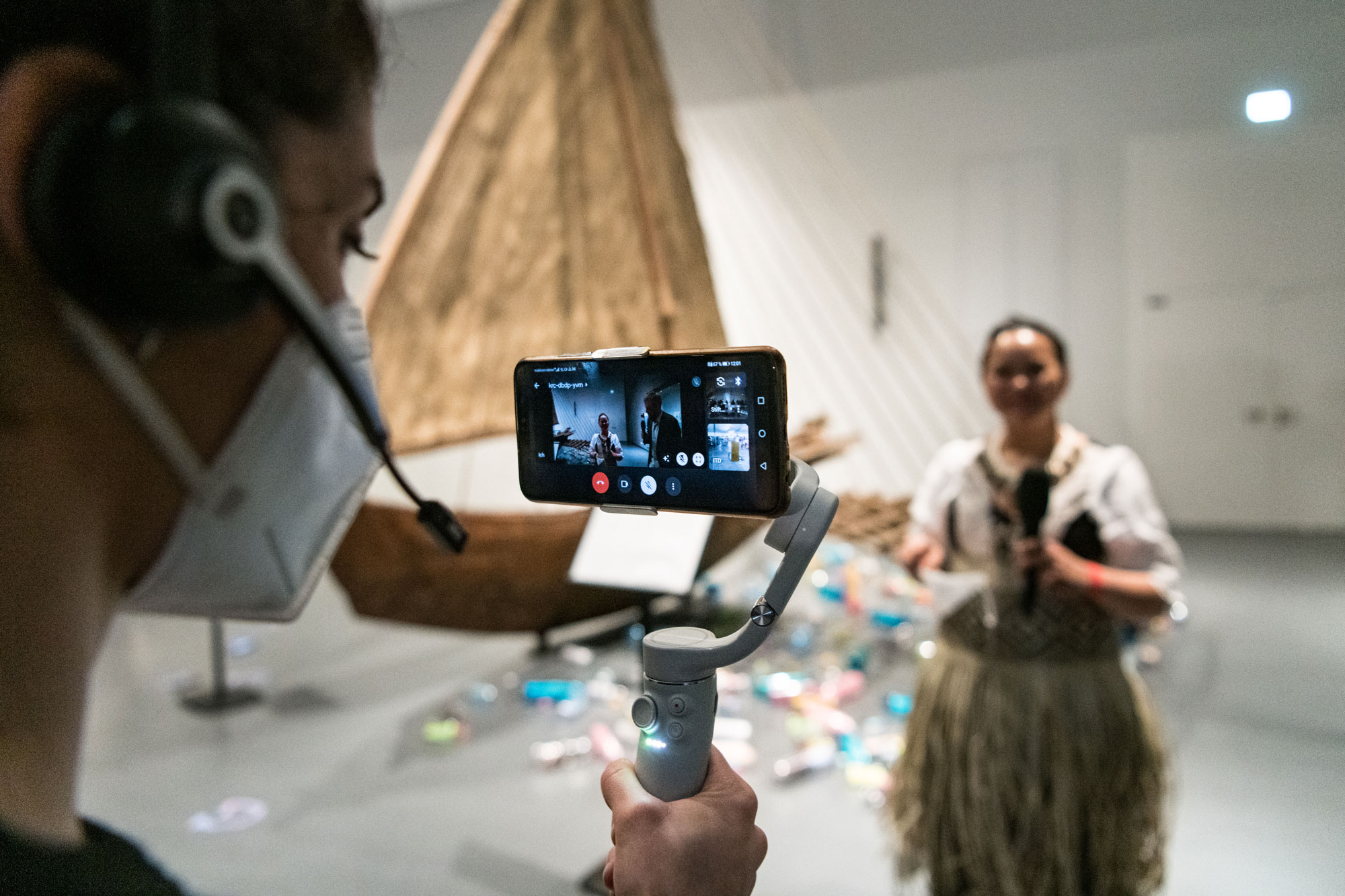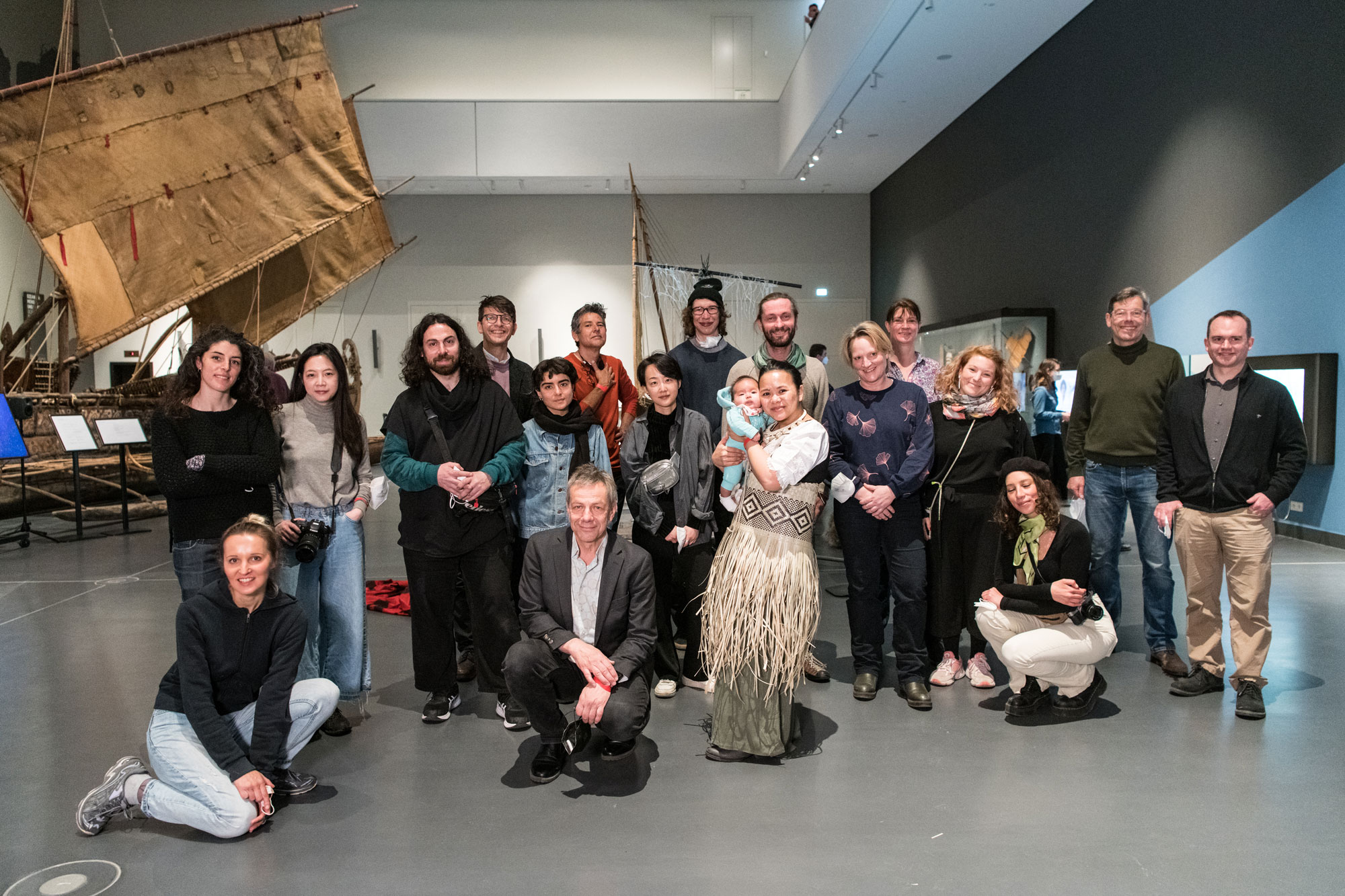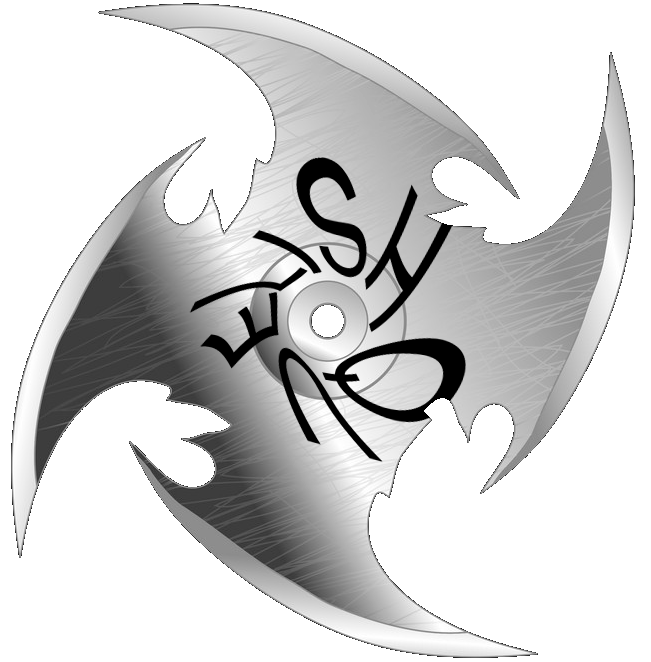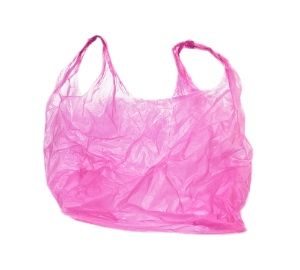Jitdam Kapeel*
Voices in the bottles
Voices in the bottles

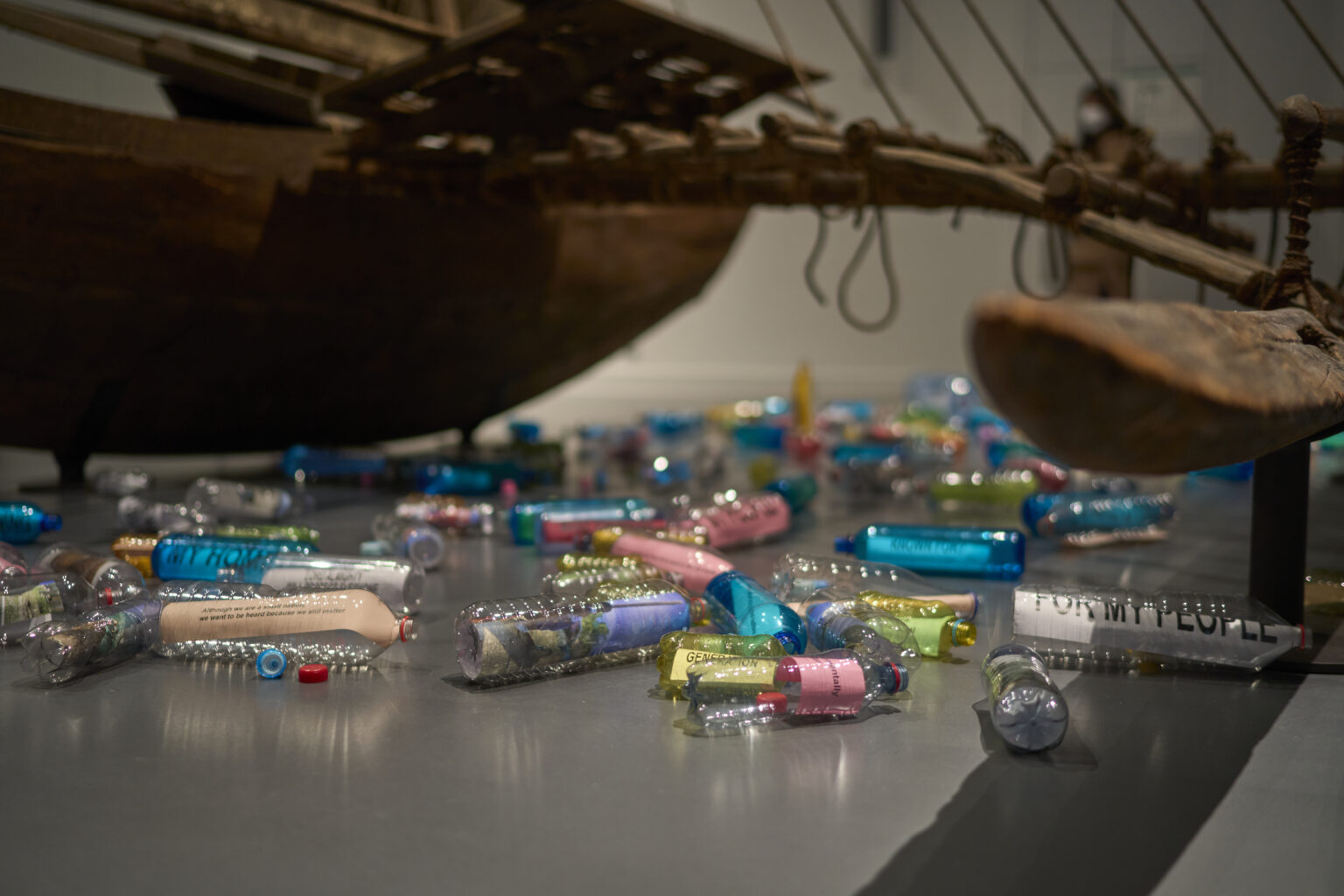

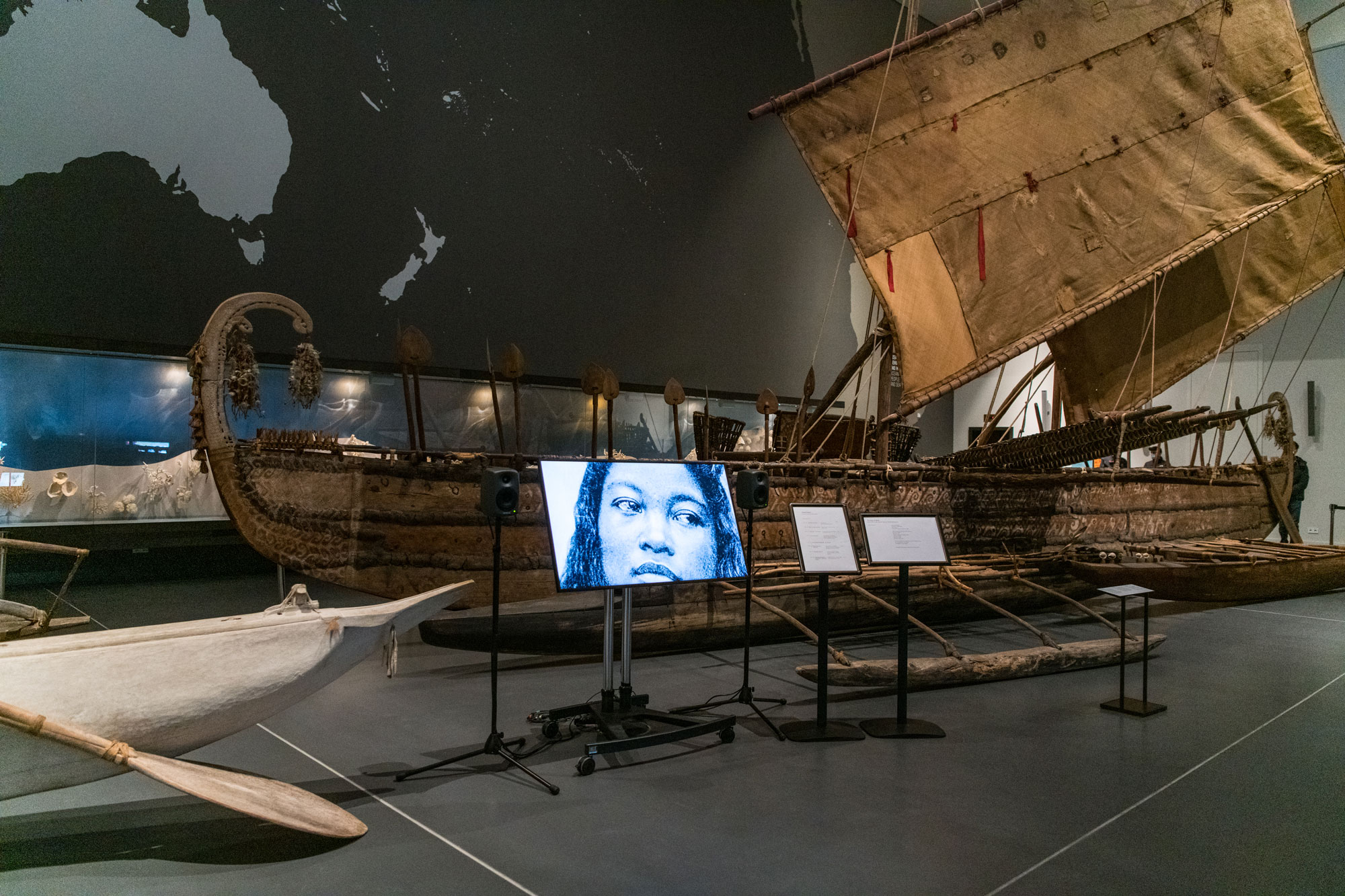

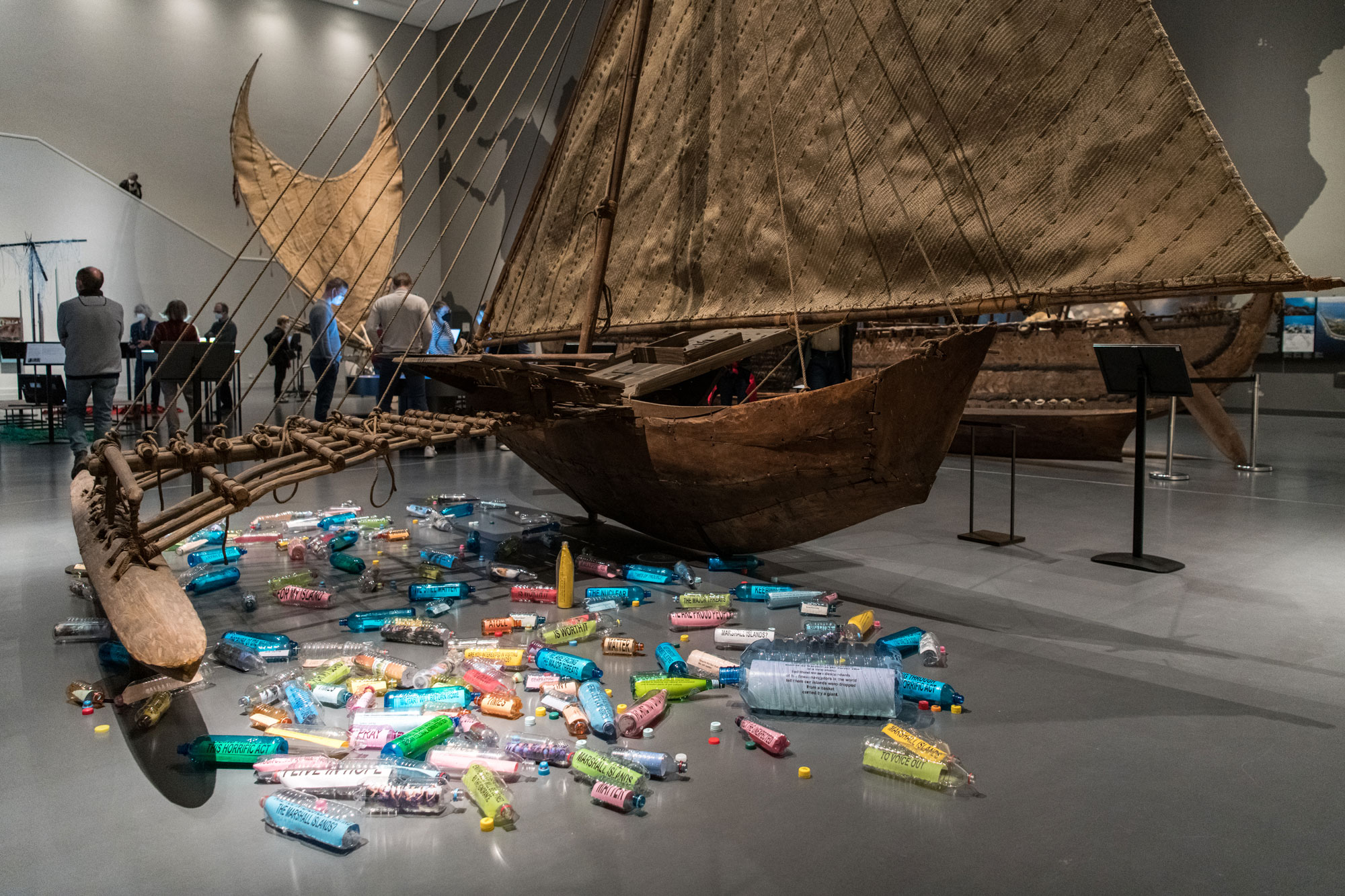
Life on the Marshall Islands is inextricably linked to the Pacific Ocean. The people of the Marshall Islands view the ocean as a living "bridge" that connects atolls, islands and continents, supporting life in all its forms. The ocean breathes life for people with every coastal wave for thousands of years. The people created these amazing boats to cross from island to island, these intuitive maps of reeds and shells to remember the location of their neighbors.
Over time, the ocean began to bring guests from very far away places, where it is impossible to reach on a small canoe. These people had big ships and big ambitions and they took control of the land of the people of the ocean. They brought a lot of new and interesting things, but also destroyed unique cultural values and traditions. The German administration was replaced by the Japanese, then the American. Military bases were built here, nuclear experiments were carried out. The ocean is no longer the main source of food, the coastline is full of plastic ‘parcels’ from all over the world.
And here we are now in the 21st century, in the middle of Berlin, where the free birds of the waves are locked in a darkened museum hall - ships and canoes from the Pacific.
What do the descendants of the creators of these ships think about it? What do they have to say across the ocean?
Plastic bottles can travel between continents and carry messages. A message to the next generations is also possible, because the natural decomposition of bottles lasts for centuries, while their use by man is counted in seconds.
The college of our partners in this project, students in Majuro, is located 13,000 kilometers from Berlin. But their voices are heard in like a singsonged sound of the waves in these lines, imprisoned in plastic. And the marshallese canoe, moored in the main palace of Berlin, may be aware of how it is now there, on its native shore, where the new motorboats drift through the same plastic bottles.
All messages in bottles were sent by students of the College of the Marshall Islands, the author's spelling is preserved. Personal photographs are also the courtesy of students.
Over time, the ocean began to bring guests from very far away places, where it is impossible to reach on a small canoe. These people had big ships and big ambitions and they took control of the land of the people of the ocean. They brought a lot of new and interesting things, but also destroyed unique cultural values and traditions. The German administration was replaced by the Japanese, then the American. Military bases were built here, nuclear experiments were carried out. The ocean is no longer the main source of food, the coastline is full of plastic ‘parcels’ from all over the world.
And here we are now in the 21st century, in the middle of Berlin, where the free birds of the waves are locked in a darkened museum hall - ships and canoes from the Pacific.
What do the descendants of the creators of these ships think about it? What do they have to say across the ocean?
Plastic bottles can travel between continents and carry messages. A message to the next generations is also possible, because the natural decomposition of bottles lasts for centuries, while their use by man is counted in seconds.
The college of our partners in this project, students in Majuro, is located 13,000 kilometers from Berlin. But their voices are heard in like a singsonged sound of the waves in these lines, imprisoned in plastic. And the marshallese canoe, moored in the main palace of Berlin, may be aware of how it is now there, on its native shore, where the new motorboats drift through the same plastic bottles.
All messages in bottles were sent by students of the College of the Marshall Islands, the author's spelling is preserved. Personal photographs are also the courtesy of students.
The project is a cooperation between the College of the Marshall Islands, the Ethnological Museum Berlin, the Humboldt Forum and the Weißensee Academy of Art Berlin.
Jitdam Kapeel* is about sharing island wisdom. In Marshallese, this proverb roughly translates to seeking knowledge or understanding is key to fostering sustainability and wisdom; start local, think global! With these words we line out the interaction with the artifacts collected in Germany’s museums and their knowledge transfer.
Jitdam Kapeel* is about sharing island wisdom. In Marshallese, this proverb roughly translates to seeking knowledge or understanding is key to fostering sustainability and wisdom; start local, think global! With these words we line out the interaction with the artifacts collected in Germany’s museums and their knowledge transfer.
looking at the past
to understand the present
in order to face the future
April 2, 2022, 10am-10pm
April 3, 2022, 10am-8pm
April 4, 2022, 10am-7pm
in the Boats of Oceania Hall (Oceania: People and Sea)
Humboldt Forum, Schlossplatz, 1078 Berlin


